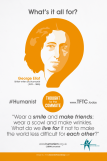
Religion's influence is waning in American life in spite of a growing appetite for religion in politics, according to new figures.
Nearly three-quarters of the public now believes the influence of religion is in decline, an increase of 5 per cent in four years.
Pew Research found that most people who believe the influence of religion is fading also believe this to be a bad thing.
At the same time, nearly half of Americans believe religious leaders and their congregations should engage with social and political issues, an increase from 43 per cent.
Nearly one third of those polled believe churches should even go so far as to endorse candidates to run in political elections.
The survey by the Pew Forum on Religion and Public life covered the role of religion in politics. The Washington Post said it revealed a "growing appetite for belief in the ballot box, and politics in the pulpit."
This growth is mainly among Republicans, driven by concerns that the country is becoming less favourable to religion and even more hostile towards white evangelicals.
Two-thirds of white evangelical Protestants and 48 per cent of Catholics now believe churches should express their views on social and political issues, up 6 points since the 2010 midterm elections, from 43 per cent to 49 per cent.
Most Republicans say politicians aren't talking enough about faith, compared to less than a third of Democrats. Pew Research found that in September, the word "God" was spoken on the House and Senate floors 75 times, "Christian" 65 times and "Jesus" 10 times. Democrats and Republicans used these terms at similar rates.
Seven in 10 Republicans say it is important for a political candidate to have strong religious beliefs. And in spite of large numbers and political clout, a majority of white evangelical Christians feels discriminated against, says Pew Research.
"White evangelicals are more likely to say that discrimination is a problem for them than it is for black [people] (36 per cent), Muslims (45 per cent) or atheists (19 per cent)," says journalist Christopher Ingraham in an analysis of the research for the Washington Post. Thirty-four per cent of evangelicals say that it is become more difficult to be religious in America, and a third see themselves as a "minority" because of their religious beliefs — more than any other group.
In fact, Protestants are actually the largest religious group in America, and white evangelicals are the largest Protestant sub-group.
There has also been a growth in the number of Americans who say homosexuality is a sin, mainly among Catholics and white evangelical Protestants, and support for gay marriage is down. Seven in 10 white evangelicals want the freedom to discriminate against gay weddings.
















